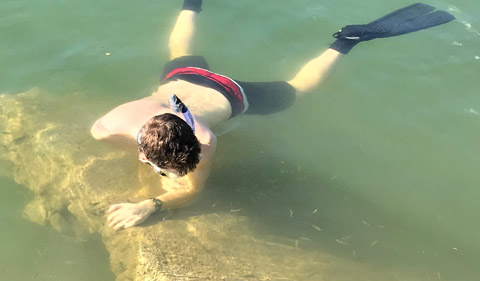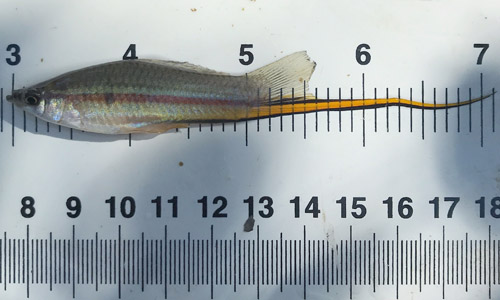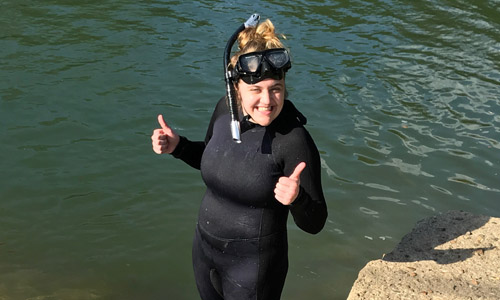Four Biological Sciences students traveled to the Cayo District in Belize in March to find field sites and collect the swordtail fish Xiphophorus helleri.
The students were M.S. student Neil Hamrick, Ph.D. student Meredith Fitschen-Brown, undergraduate Aaron Solitt ’19, and Ph.D. student Anthony Gilbert.
“The trip to Belize was an amazing opportunity for me to participate in collecting data and specimens in the field. This was the first time I had collected any specimens for study, which is an aspect of my career in marine biology that I am looking forward to continuing,” said Solitt, who just graduated with a B.S. in Marine, Freshwater, & Environmental Biology.
This opportunity was funded by an award from the College of Arts & Sciences Graduate Student Research Fund to Fitschen-Brown; Ohio University Graduate Student Senate Original work grants to Hamrick and Fitschen-Brown; and awards from the CRSCA Discretionary Fund, the College of Arts & Sciences, and the Biological Sciences Department to Solitt.
The students sampled a gradient of streams from pristine regions in the mountain ranges with no human impact all the way down to streams near major highways and agricultural lands. This opportunity allowed them to sample and photograph different fish populations across Belize, but also to collect X. helleri to bring back to Ohio University for further research in the lab of Dr. Molly Morris, Professor of Biological Sciences.
“My favorite portion of the trip was discovering how diverse small fresh water streams can be in isolated pools during the dry season. There was also large variation within the species X. helleri in terms of body shape and size. This was intriguing and warrants further research,” said Fitschen-Brown.
“It was eye-opening to be in the natural habitat of something I had only previously seen in a lab,” said Hamrick. “It opened up a lot more questions as to how and why swordtails came to look and act the way they do. From pristine mountain rivers to heavily polluted urban ditches, we found swordtails. The fact that they were present almost everywhere is testament to their behavioral flexibility. Going to Belize was an amazing experience and I feel as though I now have much more context to inform my work with swordtails.”
A special thanks to Alexandra Basolo and Bill Wagner from the University of Nebraska for advice on sites and travel in Belize.























Comments